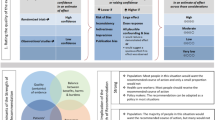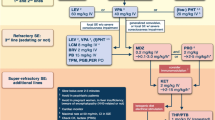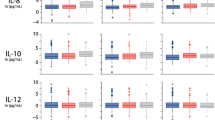Abstract
Delirium poses major problems for physicians and care teams in general medical hospitals – on the one hand, e. g., because of hazards regarding the patient with hyperactive delirium, on the other hand, because the diagnosis of delirium is missed and a severe disease of internal medicine had presented itself as a delirium.
The questions are answered: how can attention be directed to the diagnosis of a hypoactive delirium? How can delirium in a general medical hospital be treated without the danger of oversedation?
In this paper data from recent studies, which regard the diagnosis and treatment of delirium in a general medical hospital, are reported. The diagnostics of the delirium syndrome, the risk factors and the acute etiological factors which provoke delirium are presented.
Delirium can be regarded as a psychiatric fever syndrome, which demands an urgent etiological work up. The syndrome has, however in contrast to the fever syndrome of internal medicine, not only one diagnostic parameter but represents a complex syndrome, on which the staff of general medical hospitals should be trained.
Zusammenfassung
Kontext
Das Delir stellt die Ärzte und Pflegekräfte des Allgemeinkrankenhauses häufig vor schwierige Probleme – einerseits beispielsweise wegen Gefährdungen des Patienten bei überaktivem Delir, andererseits weil die Diagnose des Delirs übersehen wird und sich eine schwerwiegende internistische Erkrankung mit dem Delir angekündigt hatte.
Fragestellung
Es werden die folgenden Fragen beantwortet: Wie soll die Aufmerksamkeit auf hypoaktive Delirsyndrome verbessert werden? Wie kann symptomatisch behandelt werden, ohne dass beispielsweise eine Übersedation zu befürchten ist?
Methoden
In diesem Beitrag werden Daten von neueren Studien zusammengefasst, die die Diagnostik und die Therapie des Delirs im Allgemeinkrankenhaus betreffen. Zur Diagnostik werden das Syndrom, die Risikofaktoren und die aktuellen ätiologischen Faktoren der Auslösung besprochen.
Zusammenfassung
Das Delir ist gewissermaßen als „psychiatrisches Fiebersyndrom“ anzusehen, das eine dringende ätiologische Abklärung notwendig macht. Es hat jedoch – im Gegensatz zum Fiebersyndrom der inneren Medizin – nicht nur einen einzigen Parameter, durch den es diagnostizierbar ist, sondern stellt ein komplexes psychopathologisches Syndrom dar, auf dessen Diagnose die Mitarbeiter des Allgemeinkrankenhauses trainiert werden sollten.
Similar content being viewed by others
Literatur
Anderson D (2005) Preventing delirium in older people. Br Med Bull 73–74:25–34
Arolt V, Driessen M, Bangert-Verleger A, Neubauer H, Schürmann A, Seibert R (1995) Psychische Störungen bei internistischen und chirurgischen Krankenhauspatienten: Prävalenz und Behandlungsbedarf. Nervenarzt 66:670–677
Baker FM, Wiley C, Kokmen E, Chandra V, Schoenberg BS (1999) Delirium episodes during the course of clinically diagnosed Alzheimer's disease. J Natl Med Assoc 91:625–630
Breitbart W, Strout D (2000) Delirium in the terminally ill. Clin Geriatr Med 16:357–372
Caplan GA, Coconis J, Board N, Sayers A,Woods J (2006) Does home treatment affect delirium? A randomised controlled trial of rehabilitation of elderly and care at home or usual treatment (The REACH-OUT trial). Age Ageing 35:53–60
Casarett DJ, Inouye SK (2001) Diagnosis and management of delirium near the end of life. Ann Intern Med 135:32–40
Cole MG (2004) Delirium in elderly patients. Am J Geriatr Psychiatry 12:7–21
Edlund A, Lundström M, Karlsson S, Brannström B, Bucht G, Gustafson Y (2006) Delirium in older patients admitted to general internal medicine. J Geriatr Psychiatry Neurol 19:83–90
Eisfeld IS, Ebert AD (2005) Demenz und Verwirrtheit (Delir). In: Wallesch CW, Förstl H (Hrsg) Demenzen. Thieme, Stuttgart, S 250–264
Fick D, Foreman M (2000) Consequences of not recognizing delirium superimposed on dementia in hospitalized elderly individuals. J Gerontol Nurs 26:30–40
Fong HK, Sands LP, Leung JM (2006) The role of postoperative analgesia in delirium and cognitive decline in elderly patients: a systematic review. Anesth Analg 102:1255–1266
Gabriel A, Diefenbacher A, Zerhoch N, Reischies FM (2007) Neuropsychologische Defizite im Delir und deren Beziehung zur Störung des Bewusstseins. Psychosom Konsiliarpsychiatr 1:203–208
Grace JB, Holmes J (2006) The management of behavioral and psychiatric symptoms in delirium. Expert Opin Pharmacother 7:555–561
Inouye SK, van Dyck CH, Alessi CA, Balkin S, Siegal AP, Horwitz RI (1990) Clarifying confusion: the confusion assessment method. A new method for detection of delirium. Ann Intern Med 113:941–948
Inouye SK (2006) Delirium in older persons. N Engl J Med 354:1157–1165
Inouye SK, Zhang Y, Han L, Leo-Summers L, Jones R, Marcantonio E (2006) Recoverable cognitive dysfunction at hospital admission in older persons during acute illness. J Gen Intern Med 21:1276–1281
Korevaar JC, van Munster BC, de Rooij SE (2005) Risk factors for delirium in acutely admitted elderly patients: a prospective cohort study. BMC Geriatr 5:6
Krauseneck T, Seemüller F, Krähenmann O, Schelling G, Padberg F (2006) Psychiatrische Erkrankungen auf der Intensivstation. AINS Anasthesiol Intensivmed Notfallmed Schmerzther 41:720–726
Laurila JV, Pitkala KH, Strandberg TE, Tilvis RS (2004) Delirium among patients with and without dementia: does the diagnosis according to the DSM-IV differ from the previous classifications? Int J Geriatr Psychiatry 19:271–277
Lemiengre J, Nelis T, Joosten E, Braes T, Foreman M, Gastmans C, Milisen K (2006) Detection of delirium by bedside nurses using the confusion assessment method. J Am Geriatr Soc 54:685–689
Liptzin B, Levkoff SE (1992) An empirical study of delirium subtypes. Br J Psychiatry 161:843–845
Liptzin B, Laki A, Garb JL, Fingeroth R, Krushell R (2005) Donepezil in the prevention and treatment of post-surgical delirium. Am J Geriatr Psychiatry 13:1100–1106
Lundstrom M, Edlund A, Karlsson S, Brannstrom B, Bucht G, Gustafson Y (2005) A multifactorial intervention program reduces the duration of delirium, length of hospitalization, and mortality in delirious patients. J Am Geriatr Soc 53:622–628
McAvay GJ, Van Ness PH, Bogardus ST Jr, Zhang Y, Leslie DL, Leo-Summers LS, Inouye SK (2006) Older adults discharged from the hospital with delirium: 1-year outcomes. J Am Geriatr Soc 54:1245–1250
McCusker J, Cole M, Dendukuri N, Belzile E, Primeau F (2001) Delirium in older medical inpatients and subsequent cognitive and functional status: a prospective study.CMAJ 165:575–583
McNicoll L,Pisani MA, Zhang Y, Ely EW, Siegel MD, Inouye SK (2003) Delirium in the intensive care unit: occurrence and clinical course in older patients. J Am Geriatr Soc 51:591–598
Peterson JF, Pun BT, Dittus RS, Thomason JW, Jackson JC, Shintani AK, Ely EW (2006) Delirium and its motoric subtypes: a study of 614 critically ill patients. J Am Geriatr Soc 54:479–484
Pitkälä KH, Laurila JV, Strandberg TE, Tilvis RS (2006) Multicomponent geriatric intervention for elderly inpatients with delirium: a randomized, controlled trial. J Gerontol A Biol Sci Med Sci 61:176–181
Rahkonen T, Makela H, Paanila S, Halonen P, Sivenius J, Sulkava R (2000) Delirium in elderly people without severe predisposing disorders: etiology and 1-year prognosis after discharge. Int Psychogeriatr 12:473–481
Reeves RR, Pendarvis EJ, Kimble R (2000) Unrecognized medical emergencies admitted to psychiatric units. Am J Emerg Med 18:390–393
Reischies FM (2003) Organische Psychosen. In: Gastpar M, Kasper S, Linden M (Hrsg) Lehrbuch der Psychiatrie, 2. Aufl. Springer, Wien, S 19–34
Reischies FM, Diefenbacher A, Reichwaldt, W (2003) Delir. In: Arolt V, Diefenbacher A (Hrsg) Psychiatrie in der klinischen Medizin. Steinkopff, Darmstadt, S 259–284
Reischies FM, Neuhaus AH, Hansen ML, Mientus S, Mulert C, Gallinat J (2005) Electrophysiological and neuropsychological analysis of a delirious state: the role of the anterior cingulate gyrus. Psychiatry Res 138:171–181
Reischies FM, Gabriel A, Zerhoch N, Neuhaus AH (2007) Untersuchungen zu psychopathologischen und neuropsychologischen Symptomen des Delirs – wie sensitiv sind sie. Psychiatr Prax, im Druck
Reischies FM (2007) Psychopathologie – Merkmale psychischer Krankheitsbilder und klinische Neurowissenschaft. Springer, Berlin Heidelberg New York
Reischies FM, Walden J, Hewer W (2007) Organische Psychische Störungen – Psychische Hirnschädigungssyndrome und psychische Syndrome bei Hirnfunktionsstörungen auf Grund von somatischen Erkrankungen. In: Hewer W, Rossler (Hrsg) Akute psychische Erkrankungen – Management und Therapie, 2. Aufl. Urban and Schwarzenberg, München, im Druck
Rockwood K, Cosway S, Carver D, Jarrett P, Stadnyk K, Fisk J (1999) The risk of dementia and death after delirium. Age Ageing 28:551–556
Sandberg O, Gustafson Y, Brannstrom B, Bucht G (1999) Clinical profile of delirium in older patients. J Am Geriatr Soc 47:1300–1306
Seitz DP, Gill SS, van Zyl LT (2007) Antipsychotics in the treatment of delirium: a systematic review. J Clin Psychiatry 68:11–21
Siddiqi N, House AO, Holmes JD (2006) Occurrence and outcome of delirium in medical in-patients: a systematic literature review. Age Ageing 35:350–364
Sylvestre MP, McCusker J, Cole M, Regeasse A, Belzile E, Abrahamowicz M (2006) Classification of patterns of delirium severity scores over time in an elderly population. Int Psychogeriatr 18:667–680
Trzepacz PT (1996) Delirium.Advances in diagnosis, pathophysiology and treatment. Psychiatr Clin N Am 19:429–448
Author information
Authors and Affiliations
Corresponding author
Rights and permissions
About this article
Cite this article
Reischies, F.M. Delir im Allgemeinkrankenhaus. Psychosom Konsiliarpsychiatr 1, 184–192 (2007). https://doi.org/10.1007/s11800-007-0052-6
Received:
Accepted:
Issue Date:
DOI: https://doi.org/10.1007/s11800-007-0052-6




